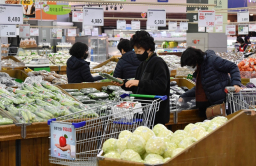-
KOSPI 2577.27 -2.21 -0.09%
-
KOSDAQ 722.52 -7.07 -0.97%
-
KOSPI200 341.49 +0.02 +0.01%
-
USD/KRW 1396 -2.00 0.14%
BOK’s mission impossible: To lower both inflation and govt bond yields
Central bank
BOK’s mission impossible: To lower both inflation and govt bond yields
The inflation-fighting central bank pledges to buy more treasury bonds after purchasing $1.7 bn in early February
By
Feb 15, 2022 (Gmt+09:00)
3
Min read
News+
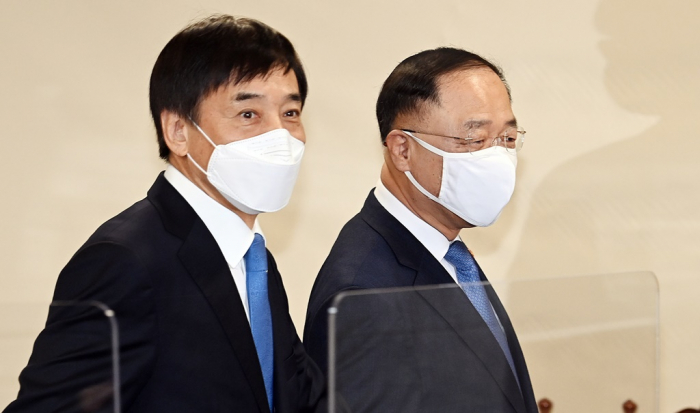
South Korea’s central bank is caught in a dilemma as it needs to raise interest rates to curb rising inflationary pressure in Asia’s fourth-largest economy – with import prices up 30% in January – all while pushing down government bond yields.
The Bank of Korea plans to buy government bonds to stem their yields surging on lawmakers’ rush to increase the supplementary budget ahead of next month's presidential election. The plan coincides with the BOK’s move to raise the base interest rate and cut liquidity. The purchase of treasury bonds is likely to add to inflationary pressure, some experts criticized.
The highly liquid three-year Korean treasury yield stood at 2.347% on Monday, its highest level since the 2.350% seen in September 2014.
That came as Parliament sought to raise the supplementary budget, fanning expectations of increasing deficit bond issues. The government initially planned to sell 11.3 trillion won ($9.4 billion) in deficit bonds for the 14 trillion won supplementary budget proposed in January. But the issuance is expected to expand to around 30 trillion won depending on the amount of the extra spending.
Surging treasury bond yields have ramped up corporate borrowing costs to eight-year highs.
BOK GOVERNOR PLEDGES TO BUY MORE GOVERNMENT BONDS
To stem the rising government bond yields, the BOK on Feb. 7 bought 2 trillion won in treasury bonds. Governor Lee Ju-yeol pledged additional purchases on Feb. 11 in a contrary move to contain inflation by ramping up interest rates.
That compared with the US Federal Reserve’s steps both to increase borrowing costs and seek quantitative tightening, in a process aimed at reducing the size of the central bank’s balance sheet.
The BOK’s contradictory moves added to concerns that inflation will accelerate further, although Governor Lee said the central bank will cooperate with the government to ease the pressure.
“We will focus on stable management of inflation expectations and core inflation through the BOK’s macroeconomic measures such as liquidity controls and the government’s microeconomic stabilization steps,” Lee said.
Last year, the central bank already bought 6 trillion won worth of government bonds as the country sought two extra budgets, spurring controversies on debt monetization, the practice of a government borrowing money from the central bank to finance public spending.
The latest treasury bond purchases even raised talk that the BOK is using its power to print money to finance the government’s extra spending.
INFLATIONARY PRESSURE REMAINS HIGH
Inflationary pressure stayed stubbornly high as import prices in January surged 30.1% from a year earlier on soaring crude oil prices, according to the BOK data released on Tuesday.
The Middle East crude benchmark Dubai price jumped 52.3% to $83.47 a barrel on average last month from January 2021. That was 14% higher than December. Import prices of coal and petroleum products shot up 54.1%.
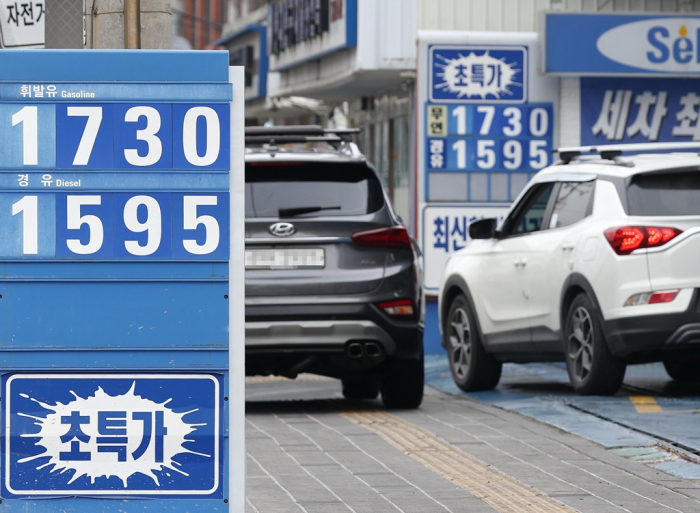
Crude oil prices are expected to stay high, given rising tensions over Ukraine, putting upward pressure on South Korea’s import prices. Russia's potential invasion of Ukraine is predicted to lift the prices to $120-$150 per barrel.
The weakness in the South Korean won currency also contributed to higher import prices, which will eventually cause companies to raise product prices and thus overall inflation.
Consumer inflation was forecast to accelerate to an 11-year high of some 3% in 2022, analysts said. Consumer prices rose 3.6% last month, a notch lower than a 3.8% decade peak in November 2021, according to government data. Inflation has remained above the 3% level for the fourth straight month.
Write to Ik-Hwan Kim at lovepen@hankyung.com
Jongwoo Cheon edited this article.
More To Read
-
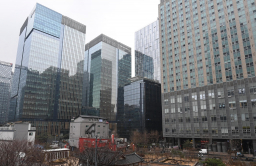 Corporate bondsKorea corporate borrowing costs jump to 8-year peaks
Corporate bondsKorea corporate borrowing costs jump to 8-year peaksFeb 10, 2022 (Gmt+09:00)
-
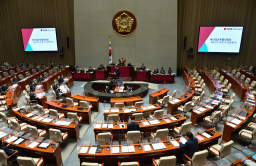 Treasury bondsKorea bond yields near four-year highs on extra budget
Treasury bondsKorea bond yields near four-year highs on extra budgetFeb 09, 2022 (Gmt+09:00)
-
Feb 04, 2022 (Gmt+09:00)
-
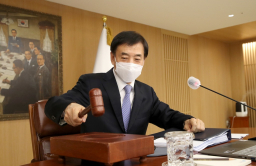 Banking & FinanceBOK restores interest rates to pre-pandemic level
Banking & FinanceBOK restores interest rates to pre-pandemic levelJan 14, 2022 (Gmt+09:00)


